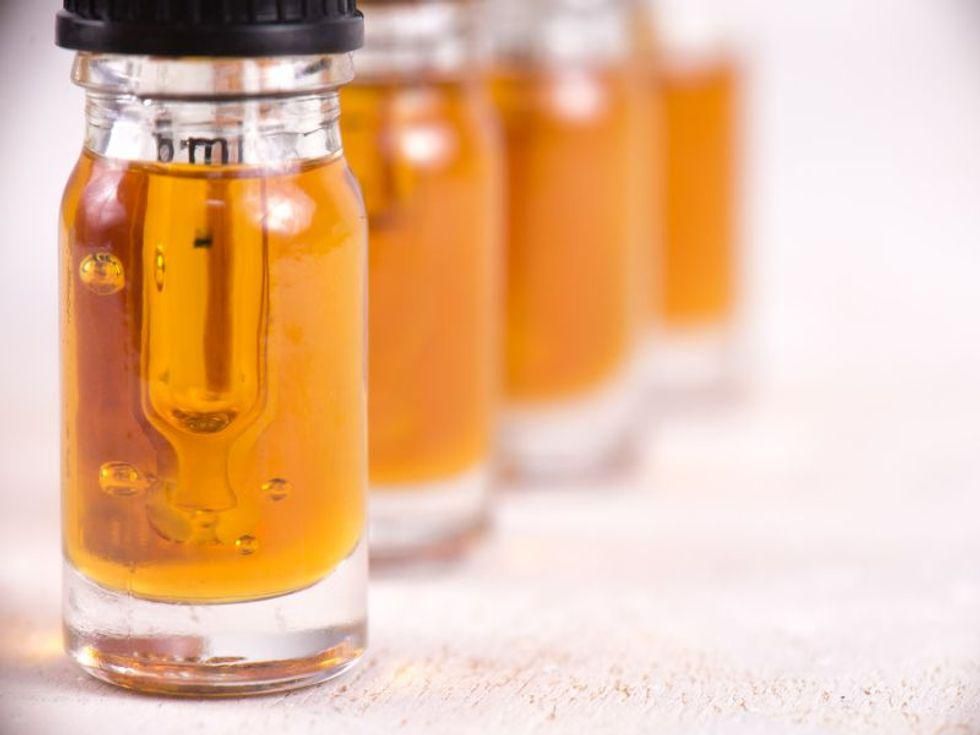
Could the answer to easing the tough-to-treat chronic pain and fatigue of fibromyalgia be found in edibles and other products containing CBD?
A new study from Michigan Medicine examined whether people using potentially addictive painkillers like opioids could get relief by replacing those narcotics with over-the-counter cannabidiol (CBD) treatments.
There’s recent research “suggesting that CBD does potentially have analgesic properties. That it might help with inflammation. That it may help with anxiety and sleep,” explained Kevin Boehnke, a research investigator in the Chronic Pain and Fatigue Research Center at the University of Michigan, in Ann Arbor.
He believes there’s growing evidence CBD products may help fibromyalgia patients ease pain. So, the major questions now are, “‘in what people does it work the best? In what doses does it work the best? And what administration groups does it work the best? And how do we optimize those things most effectively?’,” Boehnke said.
CBD is a component of the cannabis plant that doesn’t have the intoxicating effects of THC, the ingredient in marijuana that makes people feel high.
For the study, the research team focused on 878 people with fibromyalgia who said they used CBD. The aim was to get more insight into how people used CBD products, ranging from those that could be smoked to topical applications and foods.
The investigators found that more than 70% of people who used CBD to treat their fibromyalgia symptoms did so as a substitute for opioids or other pain medications. Many reported that they stopped taking opioids or decreased their use of opioids after they began using CBD.
Subbing CBD for opioids
Study participants who used CBD products that also contained THC had higher odds of substitution and reported greater symptom relief.
Fibromyalgia affects between 2% to 4% of the global population, with symptoms that include pain, fatigue, sleep disturbances and cognitive dysfunction. A disease that has long been misunderstood and stigmatized, this made it difficult to get proper treatment in the past, Boehnke said.
Three U.S. Food and Drug Administration-approved medications for fibromyalgia typically offer only modest pain relief, but have significant side effects, the study authors noted. Opioids are not typically recommended as a fibromyalgia treatment, Boehnke said, yet as with other chronic pain conditions, the drugs may be overprescribed.
“One of the scarier situations to consider, but on the positive side, what an amazing opportunity for harm reduction it is if somebody is using CBD in place of an opioid and finding it to be a better pain management tool,” Boehnke added.
Some fibromyalgia interventions that don’t involve medications include acupuncture, massage and nutrition, but these are often not covered by insurance, the researchers explained.
“I think it’s easier when there’s access, when people are not paying out of pocket, when, for example, your primary care physician actually knows that these things are effective,” Boehnke said.
The study was published online recently in The Journal of Pain.
While most patients who have fibromyalgia improve with treatment, there is a small subset of patients whose conditions are difficult to treat, said Dr. Scott Zashin, an internist and rheumatologist in Dallas.
More research needed
In addition to the three FDA-approved medications, there are other drugs used to treat fibromyalgia that are considered “off-label,” Zashin said. For some, nonsteroidal anti-inflammatory drugs — like ibuprofen (Motrin, Advil) or naproxen (Aleve) — can be helpful.
“I prescribe an off-label treatment called low-dose naltrexone, which I have found very helpful for many of my patients,” Zashin said. “It’s actually a narcotic antagonist [blocks the effect of narcotics] that is felt to help both pain and inflammation by increasing endorphins in blood.”
While there can be a placebo response when treating fibromyalgia with CBD, the fact that many people continue to use these treatments suggests the relief may be real, Zashin said.
“This study shows that CBD may be helpful to some patients with fibromyalgia, but as the article points out, there are no controlled studies, and the benefits and risks are not clear at this time,” Zashin said. “Nevertheless, studies are needed to help answer these questions.”
Boehnke said it’s promising that products containing only CBD, not just with added THC, also reportedly provided pain relief. More research is needed, he agreed, noting that this use of CBD to treat symptoms is occurring without clinical trials or physician guidance.
Currently, lack of regulation is also a concern, Boehnke said. With no oversight, products may also contain harmful additives, can be labeled as CBD without containing it and some synthetic products may be dangerous, he noted.
“If you feel comfortable doing so, have a chat with your health care provider about it, especially in case there is some potential medication interaction that could be of concern,” he added.
“I personally believe that clinicians should really be open to this,” Boehnke said, “not because it’s going to be a cure-all but because it’s important to know what one’s patients are doing.”
More information
The U.S. Centers for Disease Control and Prevention has more information about fibromyalgia.
SOURCES: Kevin Boehnke, PhD, research investigator, department of anesthesiology, and Chronic Pain and Fatigue Research Center, University of Michigan, Ann Arbor; Scott Zashin, MD, internist and rheumatologist, Dallas, Texas; The Journal of Pain, May 12, 2021, online
Source: HealthDay

Leave a Reply